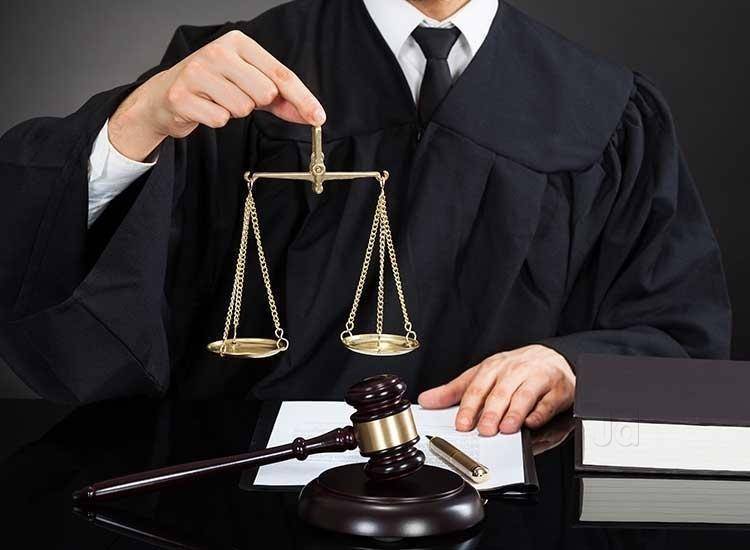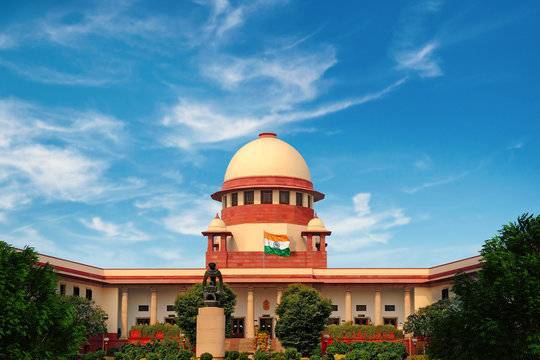
GAG LAWYERS -
GROVER & GROVER ADVOCATES

GAG LAWYERS -
GROVER & GROVER ADVOCATES

Consumer Court Lawyer, A consumer court in India is a legal forum that is established to hear and resolve disputes between consumers and businesses or service providers. These courts were established under the Consumer Protection Act of 1986 and are designed to provide a quick and inexpensive way for consumers to seek redress for grievances. They typically hear cases related to issues such as defective goods, poor service, and false or misleading advertising. Consumer courts in India have the authority to award compensation to consumers and can also impose penalties on businesses or service providers that are found to have violated consumer rights.
The Consumer Protection Act, 1986, provides for the establishment of consumer dispute redressal agencies at the district, state, and national levels to hear consumer complaints. These consumer courts are established by the state governments in India and are intended to provide an efficient and inexpensive way for consumers to resolve disputes. The consumer courts are headed by a judge or a person who is qualified to be a judge and are assisted by other members as required.
The consumer courts are empowered to hear complaints regarding goods and services, false and misleading advertisements, and unfair trade practices. The consumer court can award compensation to the consumer, impose penalties on the business, or even order the recall of goods or services if they are found to be defective or unsafe. The consumer court’s decision can be appealed to higher courts if necessary.
It is important to note that before filing a complaint in consumer court, the consumer is required to first approach the service provider or manufacturer with the grievance and give them an opportunity to resolve the issue. If the issue remains unresolved, the consumer can then file a complaint with the consumer court. This process helps to resolve disputes amicably and avoid unnecessary legal proceedings.

The Consumer Protection Act, 1986, is a law in India that provides a framework for protecting the rights of consumers and addressing grievances related to goods and services. Under this law, consumers have certain rights and obligations.
Rights of Consumers:
1) Right to Safety: Consumers have the right to be protected against goods and services that are hazardous to life and property.
2) Right to be informed: Consumers have the right to be informed about the quality, quantity, potency, purity, standard, and price of goods and services.
3) Right to Choose: Consumers have the right to choose from a variety of goods and services at competitive prices.
4) Right to be heard: Consumers have the right to be heard and to be provided with an opportunity to be heard in any procedure affecting
5) Right to Seek Redressal: Consumers have the right to seek redress against unfair or restrictive trade practices.
6) Right to Consumer Education: Consumers have the right to acquire knowledge and skills to protect their interests.
Obligations of Consumers:
1) Obligation to Provide Accurate Information: Consumers are obligated to provide accurate information when making a complaint to the consumer court.
2)Obligation to Cooperate: Consumers are obligated to cooperate with the consumer court during the process of resolving a dispute.
3) Obligation to Pay the Fees: Consumers are obligated to pay the fees associated with filing a complaint or an appeal in the consumer court.
4) Obligation to Abide by the Court’s Order: Consumers are obligated to abide by the court’s order or ruling on a dispute.
It’s important to note that these rights and obligations are not exhaustive and may vary from state to state in India. Consumers are also protected by other laws and regulations, such as the Sale of Goods Act, the Indian Contract Act, and the Indian Penal Code, in addition to the Consumer Protection Act.
The consumer court can also give relief in cases of deficiency of service and unfair trade practices. It’s important to consult with a lawyer or legal expert to understand the specific rights and obligations under the Consumer Protection Act of 1986 and other related laws.

Consumer law is a set of laws and regulations that protect the rights of consumers and provide a framework for addressing grievances related to goods and services. Some of the major benefits of consumer law include:
1. Protection of Consumer Rights: Consumer law provides a mechanism for consumers to assert their rights and seek redress in the event of any violation. This includes protection against goods and services that are hazardous to life and property, false advertising and deceptive trade practices, and unfair contract terms.
2. Access to Justice: Consumer law provides consumers with access to a fair and efficient legal system for resolving disputes. This includes the ability to file complaints and seek compensation for damages incurred as a result of a violation.
3. Encourages Fair Business Practices: Consumer law promotes fair business practices by holding businesses accountable for their actions and enforcing penalties for violations. This helps to create a level playing field for businesses and protects consumers from being taken advantage of.
4. Improving Product Quality: Consumer law helps to improve product quality by holding manufacturers and sellers accountable for the goods and services they provide. This encourages businesses to produce and sell goods and services of higher quality, which benefits both consumers and businesses.
5. Consumer Education: Consumer law promotes consumer education by providing information and resources to help consumers make informed decisions. This helps to empower consumers and enables them to better protect their own interests.
6. Protection of Consumer Privacy: Consumer laws also provide protection against unauthorized collection, use, and sharing of personal information, which helps to safeguard consumer privacy.
7. Cost savings: Consumer laws can also help save costs for consumers by providing them access to cheaper goods and services, and making it possible for them to make better choices.
In summary, consumer law provides a range of benefits that help to protect the rights of consumers, promote fair business practices, improve product quality, and empower consumers to make informed decisions. These benefits help to create a more equitable and efficient marketplace for both consumers and businesses.

As a consumer, you have certain rights that are protected by law when you are involved in disputes or other cases with a company. These rights include the right to safety, the right to be informed, the right to choose, the right to be heard, and the right to seek redress.
1. The right to safety means that, as a consumer, you have the right to be protected against goods and services that are hazardous to your life and property. This includes products that are defective, dangerous, or unsafe. Companies have a legal responsibility to ensure that their products and services are safe for consumers to use.
2. The right to be informed means that, as a consumer, you have the right to receive accurate, clear, and up-to-date information about the products and services you purchase. This includes information about the product’s origin, composition, price, and performance. Companies have a legal responsibility to provide this information to consumers before they make a purchase.
3. The right to choose means that, as a consumer, you have the right to choose from a variety of products and services at competitive prices. This includes the right to choose from a range of products and services and to be able to compare prices and quality. Companies have a legal responsibility to provide consumers with a variety of options and not engage in anti-competitive practices.
4. The right to be heard means that, as a consumer, you have the right to have your complaints and grievances heard and addressed by the company. This includes the right to seek redress through legal means if the company does not address your complaints. Companies have a legal responsibility to have a customer grievance redressal mechanism in place and to address complaints in a timely manner.
5. The right to seek redress means that, as a consumer, you have the right to seek compensation for any losses or damages you may have suffered as a result of a company’s products or services. This includes the right to seek compensation through legal means if the company does not provide a satisfactory resolution to your complaints.
6. Consumers can file complaints in the consumer court, which has the authority to award compensation to consumers and can also impose penalties on businesses or service providers that are found to have violated consumer rights.

Consumer courts in India are established to provide a quick and efficient resolution to disputes between consumers and businesses. The charges and penalties for consumer court cases vary depending on the type of case and the severity of the issue.
For instance, if a consumer files a complaint against a business for a minor issue, such as a defective product, the business may be required to pay a small fine or compensate the consumer for any damages incurred. In cases where the business is found guilty of a more serious violation, such as false advertising or deceptive practises, the court may impose a larger fine or even revoke the business’s licence to operate.
In cases where a consumer is found guilty of falsely accusing a business of a violation, the consumer may be required to pay a penalty or compensate the business for any damages incurred as a result of the false accusation.
Penalties and punishments in consumer court cases are designed to deter businesses from engaging in fraudulent or illegal practices and to protect the rights of consumers. These penalties and punishments may include fines, revocation of business licences, and even imprisonment in cases of severe violations. The goal is to ensure that businesses operate in a fair and transparent manner and to provide consumers with a recourse for addressing grievances and seeking compensation for damages.

When a consumer has a dispute with a business or service provider, they have several legal remedies available to them under the Consumer Protection Act of 1986. These remedies include:
1) Monetary compensation: A consumer court can award monetary compensation to a consumer if they have suffered losses or damages as a result of a business’s or service provider’s actions. This compensation can include reimbursement for the cost of the product or service as well as any additional costs incurred as a result of the dispute.
2) Replacement or repair of goods: A consumer court can order a business or service provider to replace or repair a defective product if it is found to be non-compliant with the terms of the sale or contract.
3) Refund: A consumer court can order a business or service provider to refund a consumer for a product or service if it is found to be defective or not as described.
4) Cease and desist order: A consumer court can issue an order requiring a business or service provider to stop an illegal or unfair practice. This can include things like false advertising or the sale of unsafe products.
5) Penalty: A consumer court can impose penalties on a business or service provider if they are found to have violated consumer rights. These penalties can include fines or imprisonment.
6) Injunctions: A consumer court can issue an injunction to prevent a business or service provider from continuing with a particular activity that is deemed harmful or unfair to the consumer. It is worth noting that the consumer court may also pass an order for the removal of defects in goods or deficiencies in services. The consumer court may also direct a refund of the price paid or the return of the goods, as the case may be.
It is important for the consumer to prove that the product or service provided by the business or service provider was defective or not as described and that they suffered losses as a result.

When filing a case related to consumer court, certain documents are typically required to be submitted as evidence in order to support the consumer’s claim. These documents may include:
1. Proof of purchase: This can include a copy of the bill of sale, receipt, or invoice for the product or service in question. This is important to establish that the consumer has a valid claim against the business or service provider.
2. Correspondence with the business or service provider: This can include any emails, letters, or other communications between the consumer and the business or service provider regarding the dispute. This can help to show that the consumer has made a good-faith effort to resolve the issue before filing a case.
3. Evidence of the defect or problem: This can include photographs, videos, or other documentation that shows the defect or problem with the product or service. This can help establish that the consumer has a valid claim.
4. Expert reports or witness statements: if the consumer is claiming that the product or service is defective or not as described, they may need to submit expert reports or witness statements from experts who can provide an opinion on the matter.
5. Evidence of losses suffered: This can include documentation such as medical bills, repair bills, or any other expenses incurred as a result of the problem with the product or service. This can help establish the amount of compensation that the consumer is seeking.
6. Legal notice served: If the consumer is filing a complaint under Section 138 of the Negotiable Instruments Act, 1881 (NI Act) for a check bounce case, they should provide a copy of the legal notice served on the drawer of the check within 30 days of the check bouncing.
It is important to note that the list of documents may vary depending on the type of case and jurisdiction and that the consumer should check with the consumer court for the specific requirements. The consumer should also ensure that all the documents are originals or certified true copies.

The procedure for filing a case related to consumer court can vary depending on the jurisdiction and the specific details of the case. However, there are some general steps that are typically followed when filing a consumer court case.
1. Gather evidence and documents: Before filing a case, it is important to gather all the necessary evidence and documents that will be used to support the consumer’s claim. This can include proof of purchase, correspondence with the business or service provider, and evidence of the defect or problem.
2. Prepare the complaint: The consumer should prepare a written complaint that describes the problem, the actions taken to resolve the issue, and the relief sought. The complaint should be clear and concise and provide all the necessary details about the case.
3. File the complaint: The consumer should file the complaint with the appropriate consumer court. The consumer court will then review the complaint and may ask for additional information or documents. Once the complaint is accepted, the consumer court will issue a notice to the business or service provider, asking them to respond to the complaint.
4. Attend the hearing: The consumer should attend the hearing, where they will need to present their evidence and arguments. The business or service provider will also be given an opportunity to present their evidence and arguments. The consumer court will then make a decision based on the evidence and arguments presented.
It is important to note that the consumer should also be aware of the limitation period while filing the complaint. The complaint should be filed within 2 years from the date of cause of action and the consumer should be aware that the court may dismiss the complaint if the consumer has not approached the service provider or manufacturer with the grievance before filing a complaint with the consumer court.

The role of a consumer court lawyer in consumer court cases is to represent the consumer in legal proceedings and advocate for their rights and interests. A consumer court lawyer can assist with the filing of a complaint, collecting and presenting evidence, and arguing the consumer’s case in court.
In consumer court cases, a consumer court lawyer can help the consumer understand their rights and obligations under consumer law and advise them on the best course of action to take. This may include negotiating a settlement with the business or representing the consumer in court if a settlement cannot be reached.
1. A consumer court lawyer can also provide guidance on the legal process and the procedures that need to be followed in order to present a case effectively.
2. Consumer Court Lawyer Help in the collection and presentation of evidence, the drafting of legal documents, and the preparation of witness statements
3. Furthermore, a consumer court lawyer can also help to ensure that the consumer’s rights are protected throughout the legal process and can advise the consumer on their options if the case is not resolved in their favour. This may include appealing the decision or seeking compensation for damages incurred as a result of the violation.

Grover & Grover, Advocates and Solicitors, is a legal firm that specialises in helping consumers with their disputes and cases in consumer courts. They can provide a variety of services that can help consumers navigate the legal process and achieve a favourable outcome.
1. Legal advice and representation: Grover & Grover, Advocates, and Solicitors can provide legal advice and representation to consumers who are planning to file a case in consumer court. They can help consumers understand their rights and the legal process and provide guidance on the best course of action to take. They can also represent consumers in court and advocate on their behalf, which can increase the chances of a favourable outcome.
2. Document preparation and filing: Grover & Grover, advocates, and solicitors can help consumers prepare the necessary documents and evidence required to file a case in consumer court. They can also assist with the filing process, ensuring that all the required documents are in order and that the complaint is filed within the time limit.
3. Negotiation and mediation: Grover & Grover, advocates, and solicitors can also help consumers negotiate with the business or service provider to resolve disputes outside of court. They can act as mediators, helping to facilitate a resolution that is fair to both parties. This can save time and money and help avoid the need for a court case.
4. Appeal: If the consumer is not satisfied with the decision of the consumer court, Grover & Grover, Advocates, and Solicitors can help them file an appeal in the higher court. They can also provide representation and legal advice during the appeal process.
It is important to note that Grover & Grover, Advocates, and Solicitors can help consumers in various types of cases related to consumer court, such as cases related to defective goods, false or misleading advertising, breach of contract, check bounce cases, etc. They can also help in cases related to the Consumer Protection Act of 1986 and the Negotiable Instruments Act of 1881.

There have been numerous cases heard by the Supreme Court and High Courts in India that have dealt with consumer rights and issues related to consumer courts. Some of the more popular cases include:
1. Vodafone India Services Private Limited v. Telecom Regulatory Authority of India: In this case, the Supreme Court ruled that the Telecom Regulatory Authority of India (TRAI) did not have the power to impose penalties on mobile service providers for dropped calls. The court held that dropped calls were not a service deficiency and that penalties could not be imposed without a valid complaint from a consumer.
2. Union of India v. Indian Medical Association: In this case, the Supreme Court held that private hospitals cannot deny emergency medical treatment to patients on the ground of non-payment of fees. The court held that the right to life, as guaranteed by the Constitution of India, includes the right to access emergency medical treatment.
3. Nestle India Ltd. v. Maggi Consumers: This case was related to Maggi Noodles, which were banned by the FSSAI in 2015. Nestle India was held guilty for not adhering to the labelling and packaging laws and misleading consumers with false information.
4. Union of India v. Union Bank of India: In this case, the Supreme Court held that banks cannot charge customers for services that are mandated by law. The court held that customers should not be charged for services such as the issuance of check books, demand draughts, and other similar services.
5. PepsiCo India Holdings Private Limited v. Commissioner of Central Excise: In this case, the High Court of Delhi held that the manufacturer of aerated drinks cannot claim exemption from excise duty under the “Packaged Commodities” rules. The court held that the aerated drinks cannot be considered “packaged commodities,” and the manufacturer is liable to pay the excise duty.
These cases demonstrate the important role that the courts play in protecting consumer rights and ensuring that businesses and service providers are held accountable for their actions. These cases have also set important precedents that have helped shape consumer law in India.